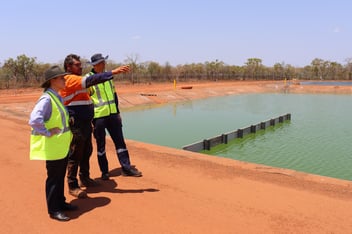Flood damage threatens supply chain for WA water quality

Flood damage to an outback rail line has severed the supply chain between Western Australia and the the rest of the country, threatening a shortage in the west of a critical water treatment chemical used by many regional utilities.
The New South Wales Water Directorate has warned utilities that a major supplier of aluminium sulphate is experiencing delivery disruptions due to the flooding and railway damage.
Repair works are currently underway on a 300 km section of the railway network between Adelaide and Tarcoola in South Australia following damaging deluge.
With persistent heavy rainfall across NSW, water quality challenges have already increased for regional utilities, and the supply shortage of alum has triggered the preparation of contingency plans.
University of New South Wales School of Civil and Environmental Engineering Professor Stuart Khan told The Guardian that the flooding and supply disruption are an example of how easily climatic events can present water quality risks for utilities.
“[Alum is] not something that you would want to have to switch over too suddenly,” he said.
“It’s a game of dominoes. It takes one weak link in the chain to not be in place and you have all these various unexpected consequences.”
More alum potentially needed
The wet weather brought in by the current La Niña phase has made many inland rivers very muddy, which means water authorities would usually need more alum for the treatment process, Khan said.
“There would be a high demand for good coagulation and you need to get that coagulation right in order to have the right conditions for chlorine disinfection [to treat pathogens],” Khan said.
“If you are struggling to remove colour and turbidity from water because you haven’t gotten your alum dosing right, then you potentially risk your disinfection performance.”
While there is no immediate concern, utilities have been asked to enact business continuity plans in response to operational disruption, including plans for substituting alternative agents, and conserving or sharing supplies between treatment plants.

